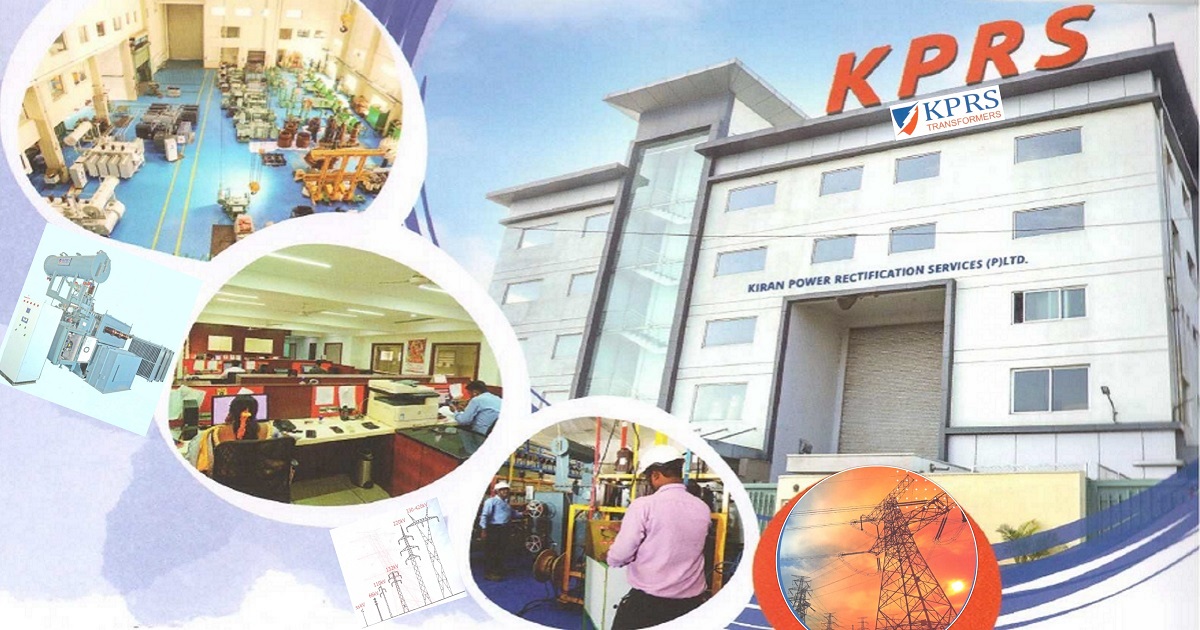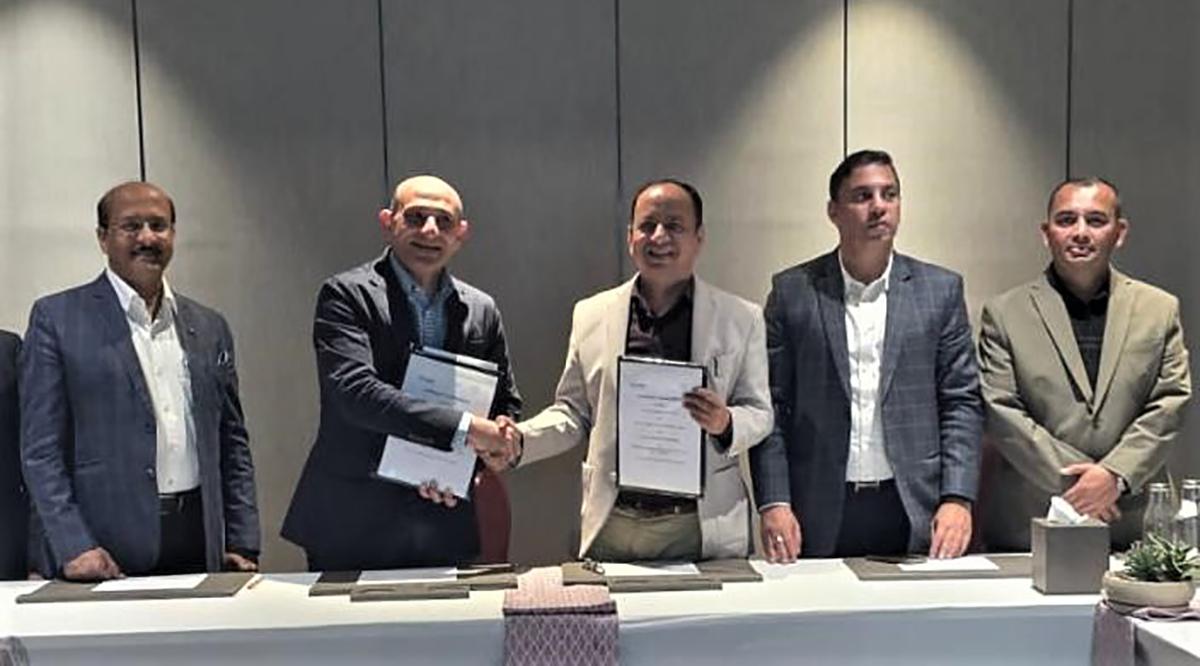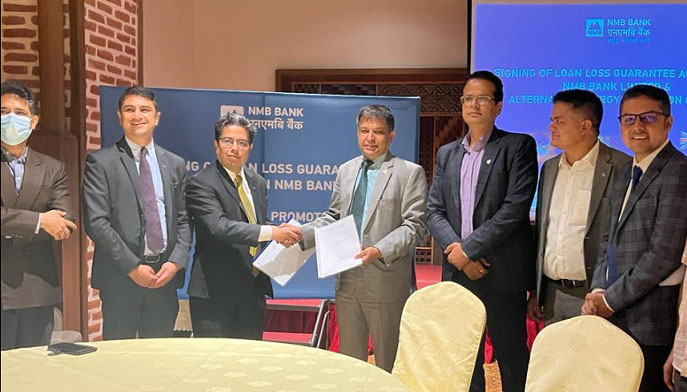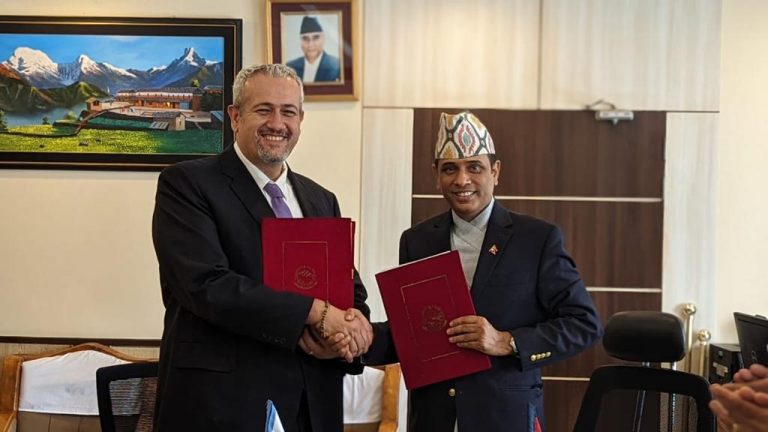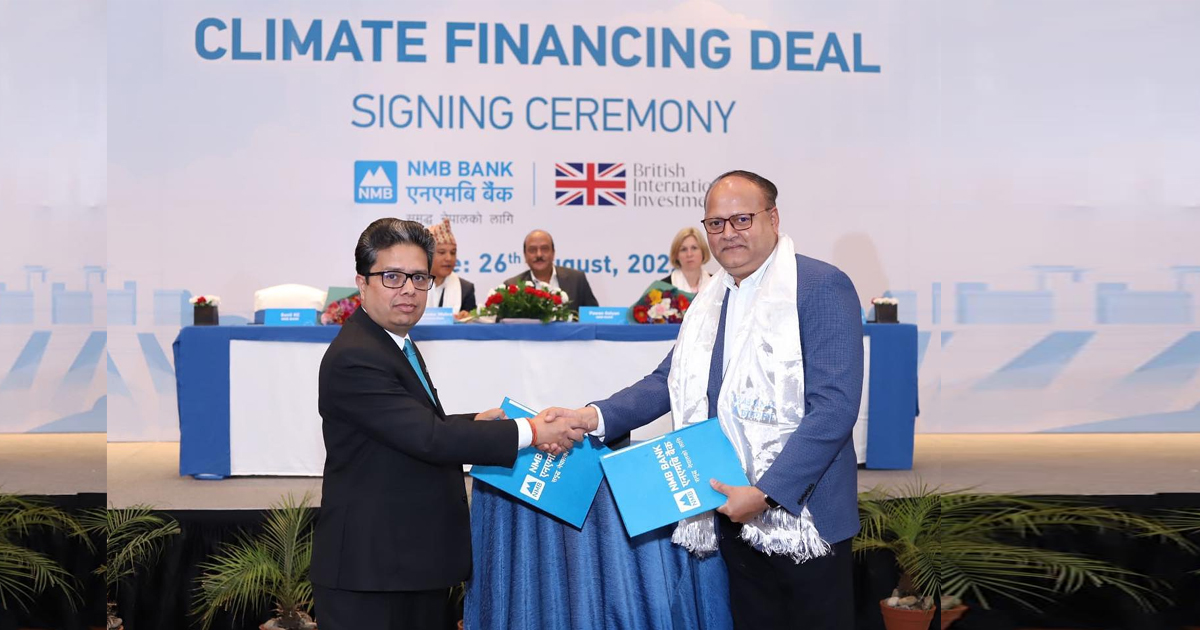Energy Update
Nabil Bank sings Mou with the European Union (EU) funded BEEN-Project
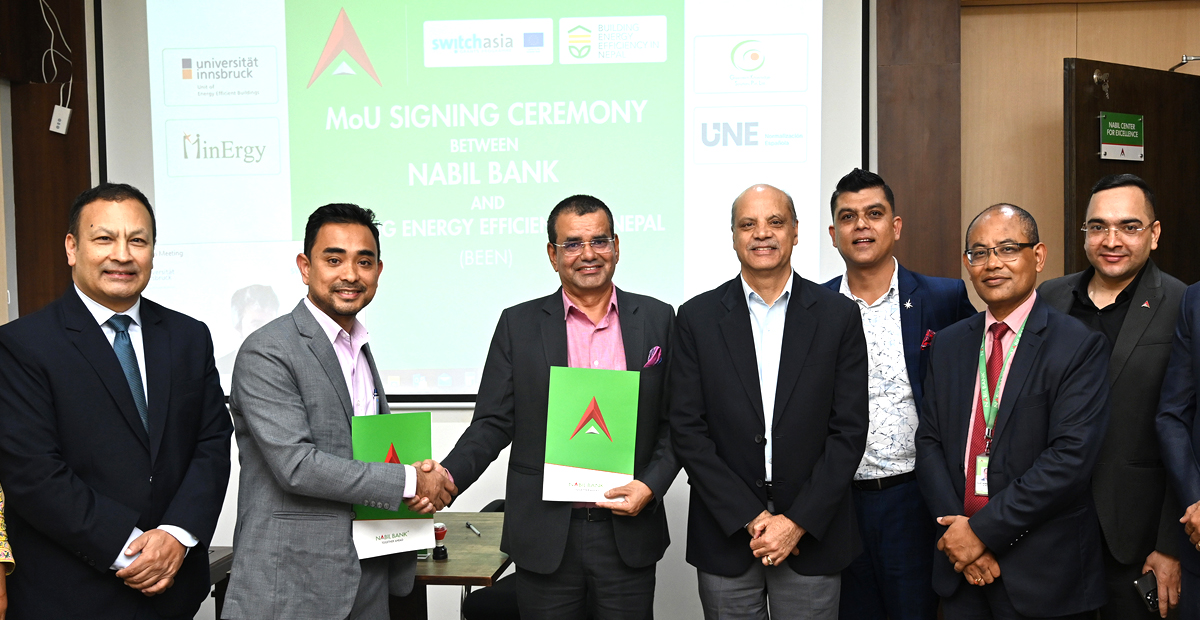
Kathmandu : Nabil Bank has signed a Memorandum of Understanding (MoU) with Building Energy Efficiency in Nepal (BEEN-Project) funded by the European Union (EU) to collaborate for the promotion of energy efficient and sustainable housing in Nepal. With this agreement, both Nabil Bank and BEEN Project agrees to work in promotion of sustainable and climate-responsive building design in Nepal.
Gyanendra Prasad Dhungana, Chief Executive Officer (CEO) of Nabil Bank and Daniel Neyer, Project Leader, BEEN -Project signed in the agreement amidst other professionals present during MoU signing ceremony. According to the bank, the partnership will specifically roll out activities on developing innovative financing package, build technical capacities to assess financial package and facilitate linkages to access preferential financial schemes for the promotion of sustainable and energy efficient buildings.

Addressing in the program, Upendra Prasad Poudyal, Chairman, Nabil Bank, said that Nabil Bank is always been sensitive towards climate change and contributing to reduce global warming. Stating that banking sectors plays vital role in reducing climate emergencies, Poudyal said, “Building energy efficient and sustainable building not only benefits environment but also has positive impact on our community and economic cycle.” He further informed that to achieve net zero emission by 2045 huge investment is required.
With the common goal to promote and aware about sustainable housing, Nabil Bank has introduced ‘Sustainable Housing Loan’ where BEEN is providing the technical assistance to define the parameters and also support in providing training and promotion and awareness of Sustainable Housing. CEO Dhungana said that Nabil Bank is promoting sustainability in many ways by promoting electric vehicle financing and sustainable housing loans products along with other sustainable practices in daily operations. He further added, “We have introduced Nabil Sustainable Housing Loans that promotes sustainable building incorporating five sustainable components in building. Initially it seems costly for investing in such buildings but in long run it saves the cost, energy and contribute for sustainable planet.”

Project Leader Neyer expressed his happiness to partnering with Nabil Bank to work in promotion of sustainable and climate-responsive building design in Nepal. He said, “With this partnership, BEEN- Project will specifically roll out activities on developing innovative financing package, build technical capacities to assess financial package and facilitate linkages to access preferential financial schemes for the promotion of sustainable and energy efficient buildings.” He further added that the BEEN Project is funded by the EU under its SWITCH-Asia Program to promote low carbon resource efficient and circular economy through EU Green Deal and Global Gateway. Being optimistic he said, “Together we can step ahead and promote sustainability for brighter future.”
Dr. Ranjan Prakash Shrestha, Senior Program Manager, the Delegation of the EU to Nepal, expressed his gratitude to Nabil Bank for continuously supporting and incorporating sustainable banking in their practices. He said, “Nabil’s initiative will certainly provide inspiration to other banking institutions and private sectors to incorporate sustainability in practice.” According to him, the EU builds collaboration with financial institutions, essential for promoting green financing for MSMEs.
According to Kathmandu Metropolitan City, they are also working on to incorporate and implement energy efficiency components in Building By-laws.
Nabil Bank had formed Sustainable Banking vertical to incorporate ESG standards into its services to achieve sustainable development goals. Universität Innsbruck (UIBK), Austria, in partnership with MinErgy Pvt Ltd (MinErgy), Nepal; Genentech Knowledge Solutions Pvt Ltd (GKSPL), India and Association Española de Normalization (UNE), Spain, are jointly implementing this project with an objective to contribute to the development of low-carbon and resource-efficiency in the Nepalese building sector.
Conversation
- Info. Dept. Reg. No. : 254/073/74
- Telephone : +977-1-5321303
- Email : [email protected]






